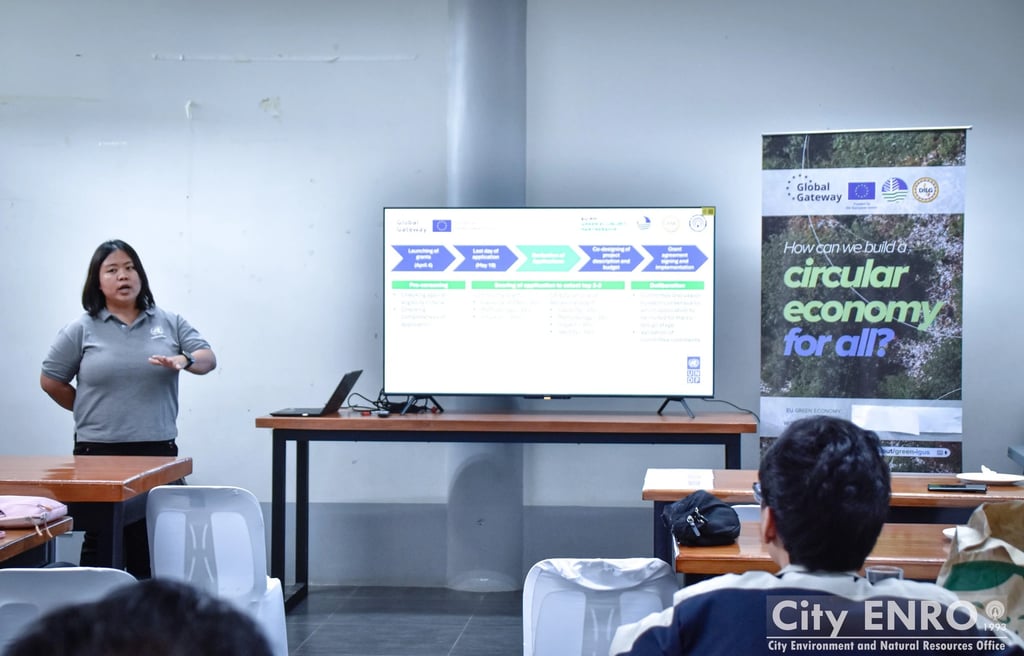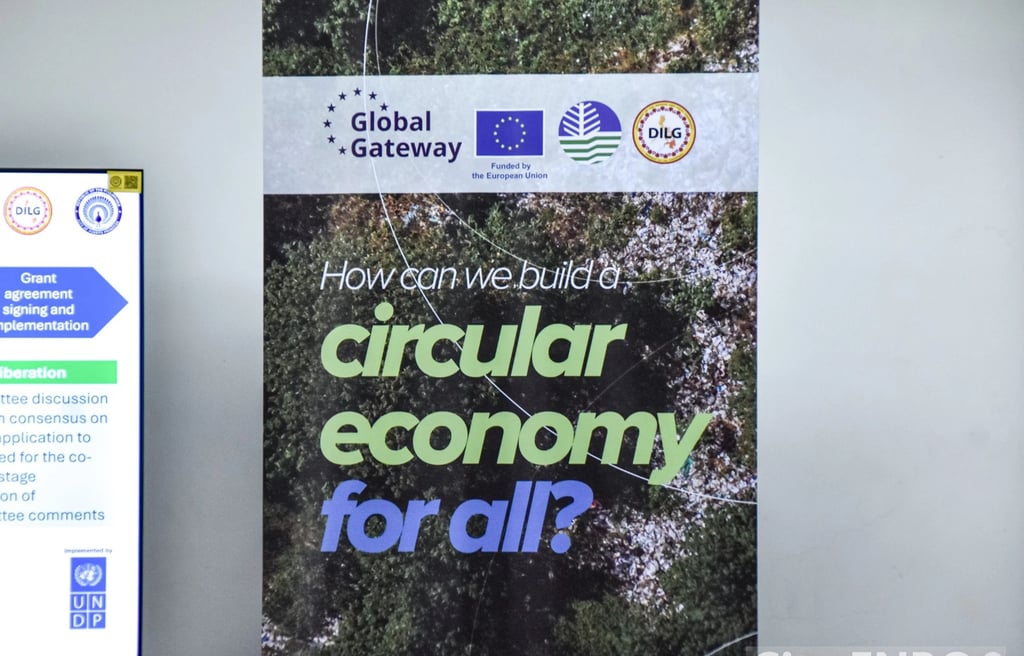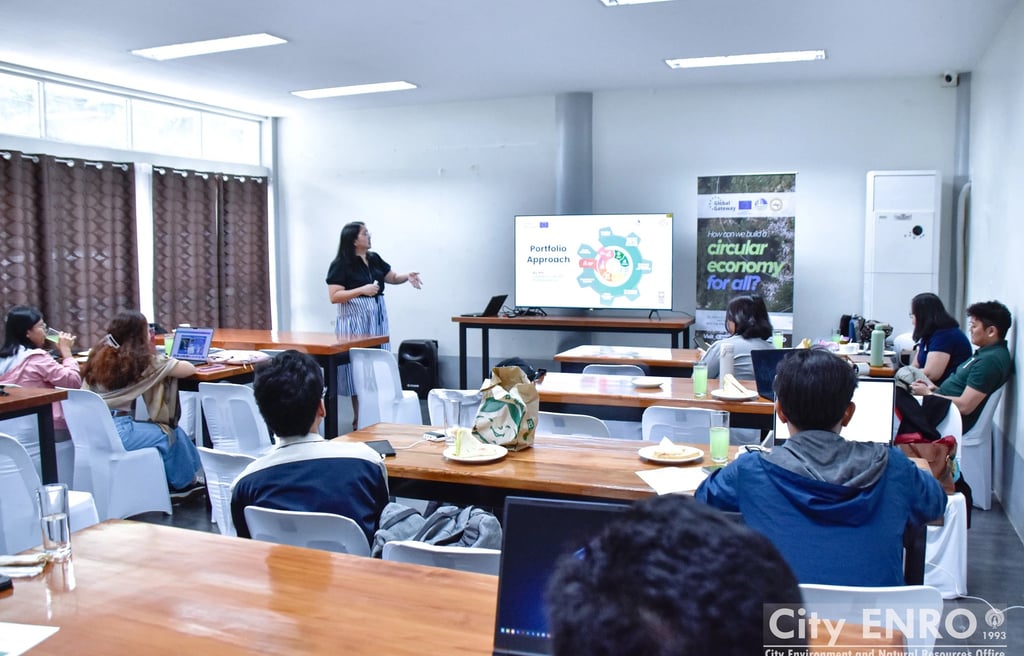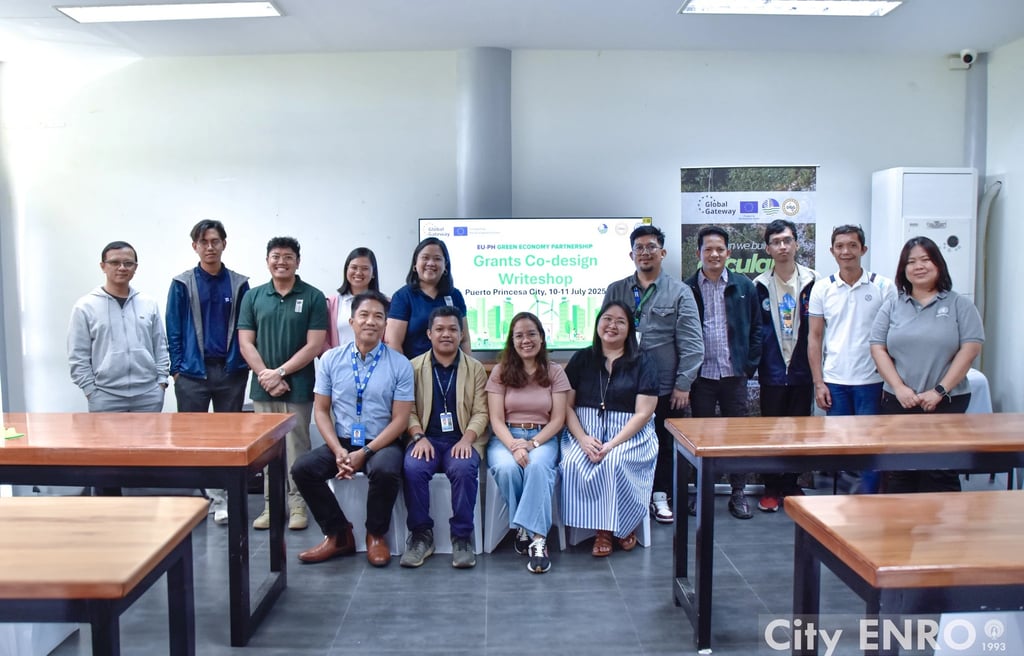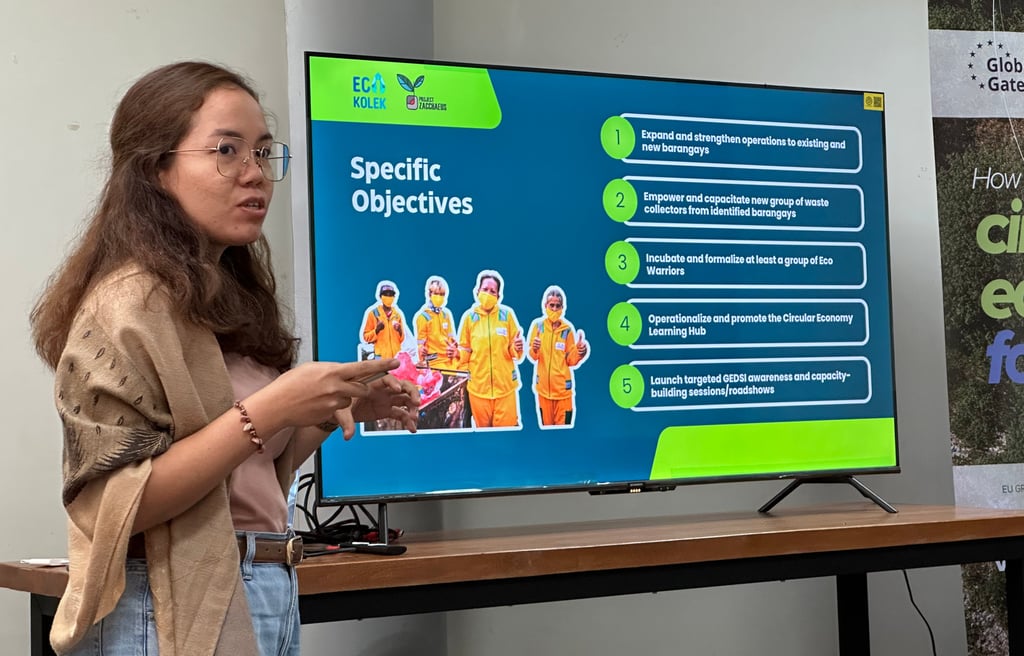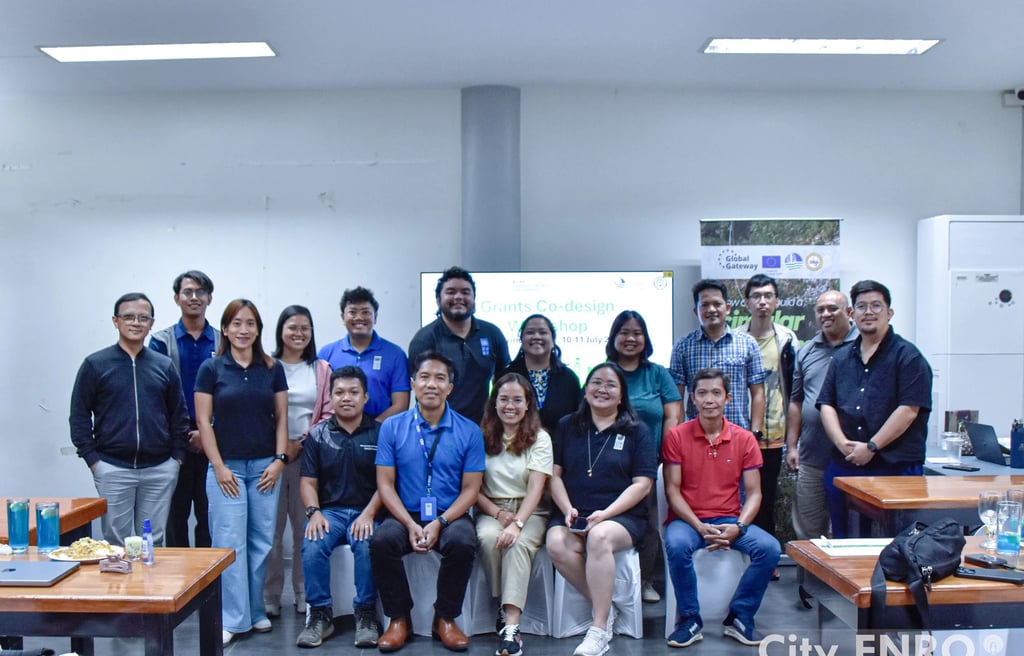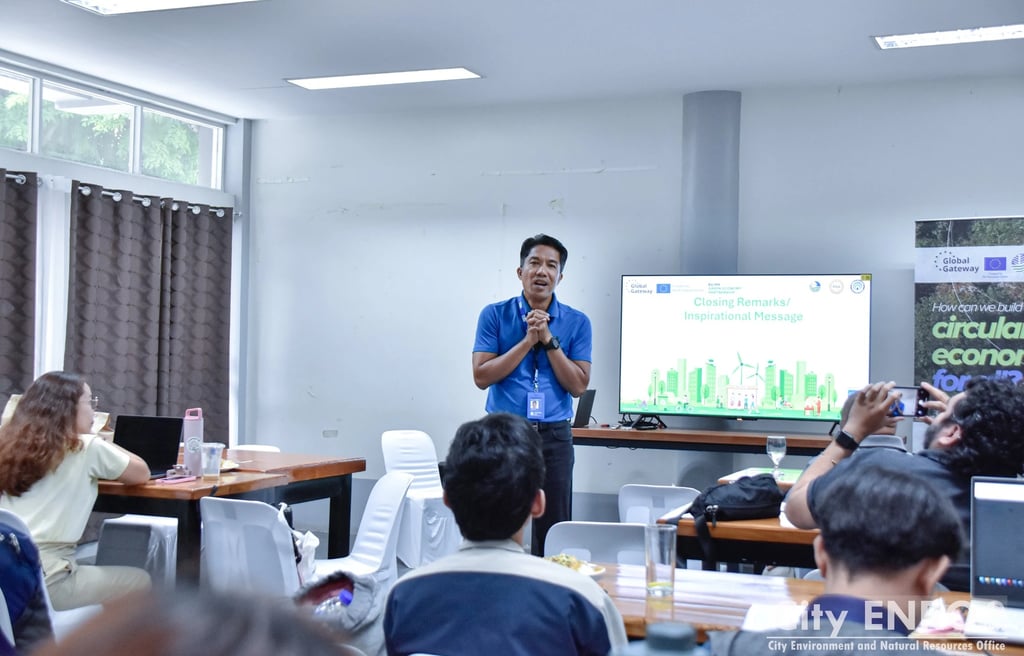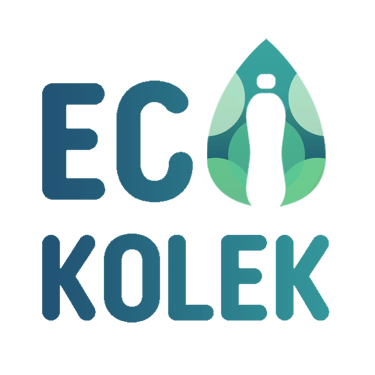Total Recyclables Collected: 308,286 kilos
Eco Kolek of Project Zacchaeus Takes Part in Co-Design Writeshop for UNDP Circular Economy Grants
Puerto Princesa City | July 10–11, 2025 — Puerto Princesa City, through its active Local Circular Economy Action Team (LCEAT), participated in the Co-Design Writeshop for grantees of the Community Grants and Social and Behavioral Change Campaign (SBCC) Grants under the EU-GEPP Green LGUs Project. The workshop was held at the Conference Room of the Puerto Princesa Subterranean River National Park Protected Area Management Office, Mendoza Park. The activity gathered key stakeholders from government, civil society, and development organizations to align efforts in advancing circular economy priorities at the local level. For Puerto Princesa, this means a sharper focus on Waste-to-Resource Innovation and Eco-Tourism and Circular Hospitality—two of the city's most critical sustainability pathways.
Mitchell Gimena
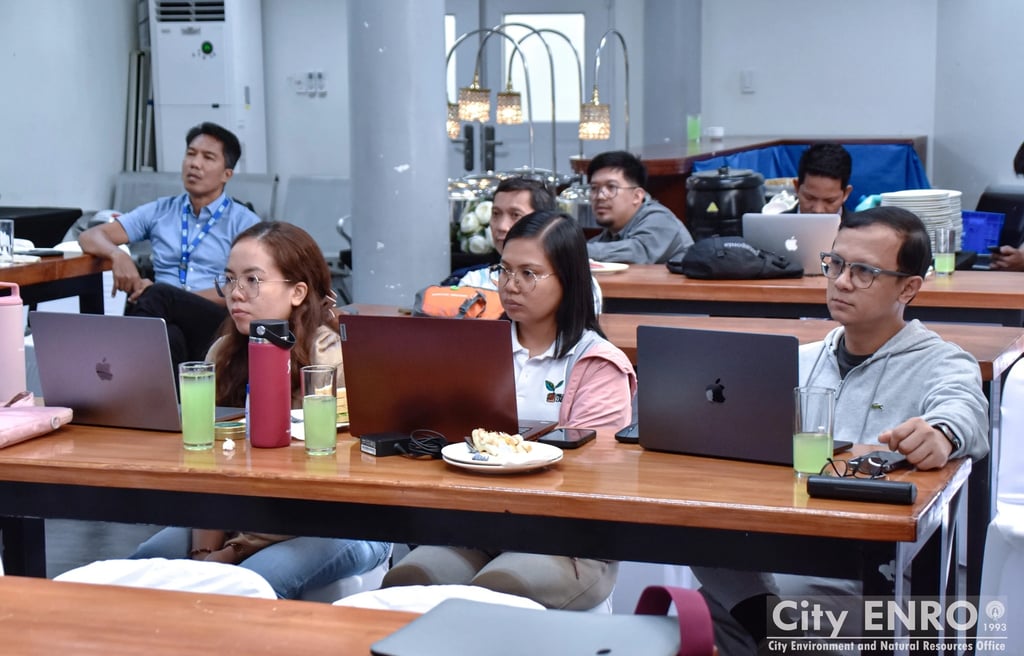

Puerto Princesa City | July 10–11, 2025 — Puerto Princesa City, through its active Local Circular Economy Action Team (LCEAT), participated in the Co-Design Writeshop for grantees of the Community Grants and Social and Behavioral Change Campaign (SBCC) Grants under the EU-GEPP Green LGUs Project. The workshop was held at the Conference Room of the Puerto Princesa Subterranean River National Park Protected Area Management Office, Mendoza Park.
The activity gathered key stakeholders from government, civil society, and development organizations to align efforts in advancing circular economy priorities at the local level. For Puerto Princesa, this means a sharper focus on Waste-to-Resource Innovation and Eco-Tourism and Circular Hospitality—two of the city's most critical sustainability pathways.
Project Zacchaeus Presents Eco Kolek Proposals
Representing civil society was Project Zacchaeus Marketing Cooperative (PZC) through its Eco Kolek initiative. PZC’s team—Shellemai Roa, Jofer Joy Malolos, and Mitchell Gimena—presented two project proposals during Day 1 of the writeshop: one for the Community Grant, and another for the Social and Behavioral Change (SBC) Education Grant.
Both proposals aim to scale community-led solid waste management while embedding behavior-centered approaches to promote long-term change in waste practices. The presentation covered key components of each proposal, including:
Problem statement and strategy
Planned activities and outputs
Target beneficiaries
Timeline and budget structure
The proposals highlighted the innovative use of design thinking workshops, visual behavioral nudges, and the activation of the Circular Economy Learning Hub—a community space built from upcycled materials that will host education campaigns and training sessions.
A Collaborative Space for Feedback and Refinement
The event, co-organized by the United Nations Development Programme (UNDP) and supported by local agencies such as DENR and DOST, also provided space for grantees to receive early feedback from the grant selection committee. Facilitated breakout sessions gave each team the opportunity to update their strategies based on behavioral insights, GEDSI integration, and stakeholder alignment.
Green LGUs for a Sustainable Future
Puerto Princesa is among the first ten pilot LGUs under the EU-GEPP Green Economy Programme, a five-year initiative (2023–2028) funded by the European Union and implemented by the Department of Environment and Natural Resources (DENR) in collaboration with DILG, DTI, and DOE.
The program aims to accelerate the country’s transition to a circular and climate-resilient economy, with a strong emphasis on multi-stakeholder collaboration at the local level. It focuses on four strategic pillars, one of which is enhancing circular economy practices through partnerships and innovation.
This co-design writeshop is a crucial step in that direction—one that ensures LGUs and grassroots actors work hand in hand in crafting solutions that are not only technically sound but also inclusive, locally owned, and behaviorally informed.
A Shared Commitment to a Greener Tomorrow
As both a pilot LGU and an active civil society partner, Puerto Princesa and Project Zacchaeus reaffirmed their commitment to finding innovative, community-driven solutions to the challenges of waste management, environmental education, and circular resource use.
With continued collaboration, the city moves closer to its vision of a greener, cleaner, and more sustainable future for all.
